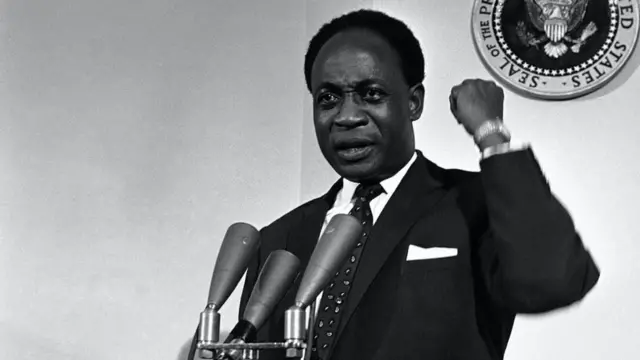BY: Gbadago Prince K. / OPINION
“Man is born free but wherever he goes, he is in chains”- Jean Jacque Rousseau.
The wars, massacres, genocides and animosities of the world, spanning from as far back as history could remember, to today, are underpinned by the two major parallel ideologies of Communism (Communalism/Socialism) and Capitalism, each of which found its fertile soils in the World’s East and West Respectively.
Africa in same vein, per historical records, was a communal society which featured EGALITARIAN practices; collective ownership of resources, cooperation, interdependence and mutual survival of all men. It is no surprise that, the Pre-Colonial African societies vested lands and royalties in the traditional Authorities, not as exclusive owners but as custodians who would hold the heritage in trust for posterity.
This peaceful and progressive social existence was truncated by the economic infiltrations and adulteration bound to colonialism and its cascading effects, especially when the colonial governments had to recruit and induce some few influential Africans (elite) to join the exploitation spree at the detriment of the aborigines. The African elite tasted extravagance and fell in love with the paradise of capitalism
Dr. Kwame Nkrumah in his early life in the Gold Coast encountered capitalism when he taught in Roman Catholic Schools and Seminaries, and the Achimota College while under colonial rule. He, in effect understood the injustice that imbues keeping the four-legged and the two-legged animals in the same farm house.
Fast forward, Dr Kwame Nkrumah, in his quest for further studies in Europe and America, had the exposure to a new social theory of communism, which stresses the economic, social and political equality of all men. Inspired by the literature and philosophy of Marcus Garvey (Garveyism) and Karl Marx (Marxism), Nkrumah pursued the just cause of human equality which he reiterated was only attainable through the mobilisation of all men and resources for the collective good.
He believed that, at the Crux of life, lied man’s highest purpose of self preservation, as such, if men were to live in peace, then self preservation must be assured through comfortable and dignified life for all. It is this assumption of his, that birthed the socialist republic of Ghana and his life-long dream of the political unification of Africa; a central political authority, an African high command (Common Defence System), a continental Central Bank etc. His faith was grounded in the narrative that, the world would be a better space for life if hunger and anger are quenched, by diverting resources that are invested into armament by capitalist institutions to rather be channeled to poverty alleviation. His greatest discovery, points out the inevitability of chaos and uprising in the face of injustice and inequality, and that to achieve peace, the state must prioritise average life for all (socialism), over the Profligacy of few elite (capitalism).
Tragically, his philosophical inclination created for him, monstrous enemies within his own CPP government, as most of the officials in his government who worked in the erstwhile colonial government were swallowed up in the pool of expensive lifestyles. A classical testimony to this fact is extracted from his book the “the dark days in Ghana” in which he lamented, ” …. these colonial trained professional classes, with certain notable exceptions, looked on independence as a strictly national concern. In many cases, all they were concerned with was taking the place of the former colonial occupiers of their jobs and making the same money as these did in the same social and economic pattern. Insofar as they were within the party, they were a source of weakness because they sabotaged attempts to prevent corruption and, in a number of cases, actually joined in it themselves- Dr Nkrumah.
One’s mind can now be put to rest on the justifications for the countless assassination attempts on Nkrumah’s life prior to the 1966 coup, which are believed to emanate from his own circus.
Deductively, not even all officials in the CPP government were Nkrumaists.
The above rational, explains the abrupt desert of Nkrumah at Perking by his trusted ministers, including Quaison A. Sackey (Foreign Minister) and Kwesi Armah (minister of trade), shortly after the news of the coup was broken to them.
Meanwhile, there were/are political fraternities who embrace Nkrumah for his philosophies but opposed him only for his latter-life authoritarian tendencies.
Conclusively, not all people who mask themselves with socialist tag are Nkrumaists. It is therefore nauseating to see some self-proclaimed socialists in today’s Ghanaian political space masking themselves with Nkrumah’s image just to court public political sympathy.
If you revere Dr Nkrumah as you so preach, put into practice his socio-economic philosophies and virtues, for the HYPOCRISY is NAUSEATING.




